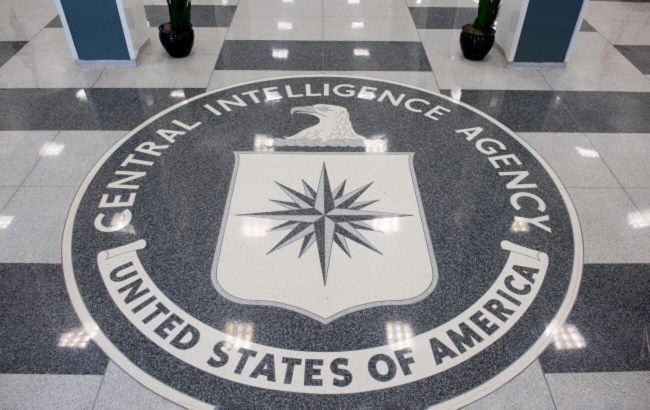Trump cuts CIA and intelligence staff amid threats from China and Russia, WP reports
 Photo: Central Intelligence Agency (Getty Images)
Photo: Central Intelligence Agency (Getty Images)
The White House is cutting thousands of intelligence personnel as China and Russia prepare a new wave of espionage activity. Former agents have already become targets of foreign intelligence services, according to The Washington Post.
The administration of US President Donald Trump is initiating a major reduction in staff at the Central Intelligence Agency (CIA) and other key intelligence structures that are part of the national intelligence system.
CIA staff reductions
Sources speaking on condition of anonymity said the White House informed Congress of its plans to cut approximately 1,200 CIA employees over the next few years. Thousands of positions are also expected to be eliminated at other intelligence agencies, including the National Security Agency (NSA), which specializes in cryptology and global electronic surveillance.
While the official number of CIA employees is classified, estimates suggest it stands at around 22,000. It remains unclear which specific departments will be most affected. According to statements by CIA Director John Ratcliffe, the agency’s priorities remain countering China and combating drug cartels trafficking synthetic drugs like fentanyl into the US.
The staff reductions will take place over several years and will partly involve cutting contracted specialists. A full-scale layoff of permanent employees is not planned. Part of the reduction will include several hundred staff who have already applied for early retirement.
According to sources, these changes are unrelated to the initiatives of the US Department of Government Efficiency (DOGE), led by Elon Musk. In March, Musk met with Ratcliffe to discuss improving the effectiveness of government institutions, but none of DOGE’s teams are currently involved in CIA operations in Langley, Virginia.
A CIA spokesperson stated that Director Ratcliffe is actively working to ensure the agency’s structure aligns with modern national security priorities. These measures are part of a broader strategy to modernize the agency, create new leadership opportunities, and strengthen the CIA’s ability to fulfill its mission.
Changes in national intelligence operations
CIA Director John Ratcliffe and Director of National Intelligence Tulsi Gabbard announced plans to optimize the operations of their respective agencies. As part of this process, and under President Trump’s directive, programs supporting the Offices of Diversity, Equity, Inclusion, and Accessibility (DEI) were terminated. Some personnel working in these areas were laid off.
In response, 19 employees of the CIA and the Office of the Director of National Intelligence (ODNI) filed a federal lawsuit seeking to halt the layoffs. In March, the court temporarily blocked the implementation of these personnel decisions.
Tulsi Gabbard, who has frequently appeared on conservative media since taking office, has criticized some members of the intelligence community, accusing them of acting against President Trump. The former congresswoman from Hawaii has also expressed skepticism about some US intelligence conclusions, such as the Assad regime’s alleged use of chemical weapons in 2017.
At an April 30 Cabinet meeting at the White House, Gabbard reported that ODNI staff numbers had decreased by 25% since her appointment. The office, which coordinates the work of 18 intelligence agencies, has about 2,000 employees. A spokesperson confirmed that several DEI-related program cuts have already been announced.
Dangerous reductions amid global threats
The planned personnel changes come amid numerous global crises and during a difficult period for US intelligence and law enforcement personnel. Trump administration officials, including Gabbard, have intensified leak investigations, using polygraphs on FBI employees — a move that current and former officials say has created a climate of pressure and anxiety.
The previous wave of layoffs, targeting probationary employees and DEI program staff, raised concerns within both the civilian and military intelligence communities.
Critics argue that these cuts may harm national security. Senator Mark Warner, the top Democrat on the Senate Intelligence Committee, said such moves reduce the United States’ ability to respond swiftly to threats.
Current and former officials warn of increased counterintelligence risks. Thousands of former intelligence employees who lost their jobs could become targets for foreign recruitment. Available information indicates that intelligence agencies in Russia and China have been instructed to intensify recruitment efforts, focusing on laid-off or demoralized former US agents.
In April, the National Counterintelligence and Security Center (a part of ODNI) warned of a rise in incidents where foreign actors pose as consulting firms, headhunting agencies, or think tanks to contact former US intelligence officers.
Although intelligence staff are trained to recognize such threats and are required to report them, even a single breach could have serious national security implications.
According to former senior officials, many CIA employees are reaching out to contacts in the private sector for job assistance. A significant number hold leadership positions but do not qualify for early retirement.
As part of the reduction, over 100 ODNI employees accepted voluntary buyout packages available until September 30. Gabbard has also initiated a review of several ODNI think tanks dealing with terrorism, counterintelligence, and nonproliferation, intending to possibly downsize or reorganize them.
Cuts for the sake of efficiency
Of the 1,200 CIA positions targeted for reduction, just over 500 belong to employees who have already applied for early retirement.
According to The Washington Post, in the coming years several thousand positions are expected to be eliminated across various agencies, including the NSA, the Defense Intelligence Agency, the National Reconnaissance Office, and the National Geospatial-Intelligence Agency.
One former senior official noted that, if handled properly, the changes could be painless or even beneficial, especially if they remove underperforming employees. The CIA’s expected 5% reduction is, in his opinion, not critical.
In a March 31 internal memo, Director Ratcliffe outlined his vision for the agency’s transformation:
"For decades, the CIA has known nothing but growth, but the years of growing budgets and resources are behind us. Moving forward, you will be part of a smaller, more elite and efficient workforce," he wrote.
Security agency downsizing
As early as January, the Trump administration ordered a reduction in staff at DEI offices.
Additionally, the Trump team is planning a $40 billion cut to Pentagon spending, which would lead to the elimination of 100 positions and the redeployment of some personnel to field units.

